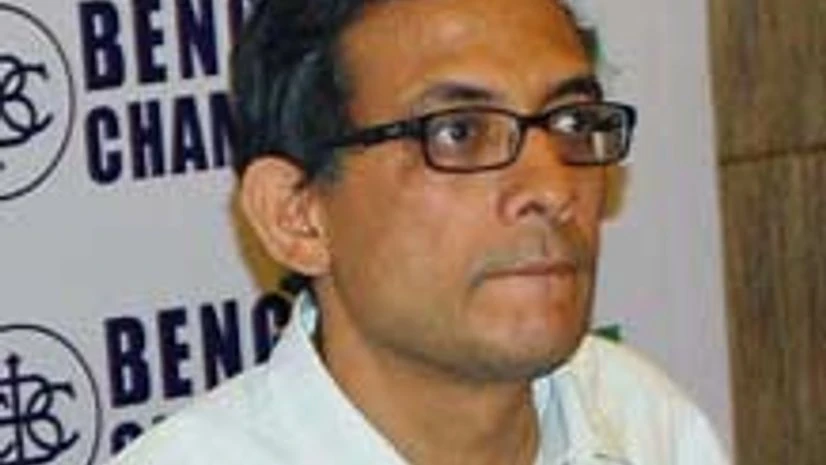Abhijit Banerjee is Ford Foundation International Professor of Economics at the Massachusetts Institute of Technology, and one of the experts entrusted with updating the Millennium Development Goals by the United Nations. Banerjee, earlier a Guggenheim Fellow, an Alfred P Sloan Fellow and who won the Infosys Prize in 2009, was at the Delhi Economics Conclave to address a session on banking-sector reforms. He spoke to Arup Roychoudhury on the sidelines. Edited excerpts:
The Cabinet has decided to pare stake in state-owned banks to 52 per cent. What impact would it have on the banks' functioning and their ability to raise capital?
I think the banks will have to work themselves to get capital from the market. The fact that they are not guaranteed a honeypot to drink will send a certain kind of signal to the market. Certain things will have to change. The banks don't live in the modern world. Beyond that, I don't know how much will change. As an example, most banks don't give strong incentives to loan officers. Even private sector banks don't. I don't think that will change anytime soon.
More From This Section
Other than provisioning for such a situation, in the Budget maybe, we can't do much. We should start provisioning for this; maybe we can set aside some mechanism for this. But the problem is that they are not NPA. You just can't have the regulators checking on every bad loan. That is just not possible. We need to force banks to be much more upfront about reporting NPAs. There are too many mechanisms for hiding NPAs.
Do you think the reporting of NPAs in India is less watertight compared to some other economies?
I think in India it is not very watertight.
What is your view of the first six months of the Narendra Modi government in terms of its policy measures? What remains to be done?
A lot needs to be done. To be fair, in six months, there is only so much you can do. I don't believe that it is useless to articulate sentiments, and the sentiment has been positive so far. But now the real work needs to be done. Everything, every little thing, needs to be changed one-by-one. That will take a long time and a lot of manpower.

)
